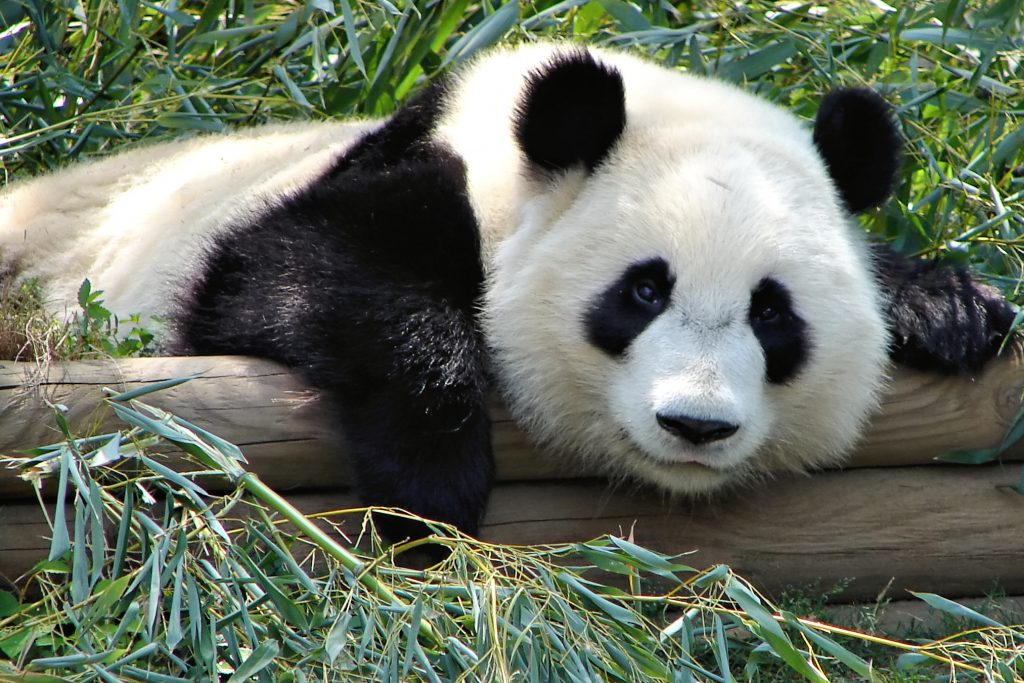The World Wildlife Foundation’s new summary report, titled ‘Appetite for Destruction’, focuses on the effect our appetite for animal protein has on the planet and brings to light many of the environmental issues vegans have been pointing to for a while.
In its executive summary, the report warns: “[f]ood is at the heart of many of the issues WWF focuses on. Through our work on sustainable diets, we know a lot of people are aware of the impact a meat-based diet has on water, land and habitats, and the implications of its associated greenhouse gas emissions. But few know the largest impact comes from the crop- based feed the animals eat.”
The report focused largely on the unsustainable use of land because findings suggest that “producing crops to feed our livestock is putting an enormous strain on our natural resources and is a driving force behind wide-scale biodiversity loss.” For instance, in the UK alone, our eating habits are linked directly to the extinction of a horrifying 33 species – within the UK and abroad.

Clearly, as the report identifies, our food system is a huge threat to the future of our planet and its inhabitants.
The report explains how growing crops used to feed animals (who we will eat or milk) uses up excessive amounts of land.
To illustrate, in 2010, the British livestock industry required land equivalent in size to Yorkshire in order to produce the soy used in feed. And the problem is set to worsen: the report claims that “if the global demand for animal products grows as anticipated, it’s estimated that soy production would need to increase by nearly 80% to feed all the animals destined for our plates.”
The report even identified poultry as the biggest user of crop-based feed, invalidating arguments that white meat is sustainable.
The problem extends far beyond Western countries like England and America, though.
Feed crops are commonly grown in already vulnerable areas, including the Amazon, Congo Basin, Yangtze, Mekong, Himalayas and the Deccan Plateau forests, where the need to protect the natural diversity is paramount. For example, Cerrado, the largest savanna region in South America, is home to roughly 5% of all species on Earth, including over 10,000 species of plants, almost half of which are found nowhere else, and animals such as the giant anteater, Spix’s macaw, and jaguar.

And yet, our eating habits threaten the biodiversity of these areas, along with the resource and water security of their inhabitants.
The report also looked beyond land use, commenting that “[t]he loss of species and habitats is not the only outcome of our current animal protein consumption. Intensive animal husbandry, relying on feeding animals energy- and protein-rich crops, has been linked to a decrease in the healthy omega-3 content of our animal products and an increase in their unhealthy saturated fat content.”
In fact, studies have shown that the difference is such that in order to obtain the same amount of the healthy omega-3 fatty acid found in just one chicken in the 1970s, you would now need to eat six intensively reared chickens.
Dispelling another health myth – that fish is nutritionally very beneficial – the report pointed to a similar reduction in farmed fish: the omega-3 in farmed Scottish Atlantic salmon has halved since 2006.

Thus, the report voiced concern that “our current food system will not be able to meet the future fatty acid needs of our growing global population.”
But, there is something we can do to remedy these issues.
The report recommended eating more plants, to “enjoy other sources of proteins such as peas, beans and nuts” rather than meat, and to waste less food.
The report took this somber topic head-on, lamenting, “[t]he growth in intensive industrial farming coupled with an increased need for protein- and energy-rich animal feed has had a devastating impact on nature. Feed crops threaten the biodiversity of many of Earth’s most valuable and vulnerable areas.”
But, it ended on a note of hope: “[w]e believe it’s possible, and essential, to change food production systems and consumption patterns to secure enough nutritionally complete and environmentally sustainable food for everyone on Earth.”
Image Credit: About Animals


